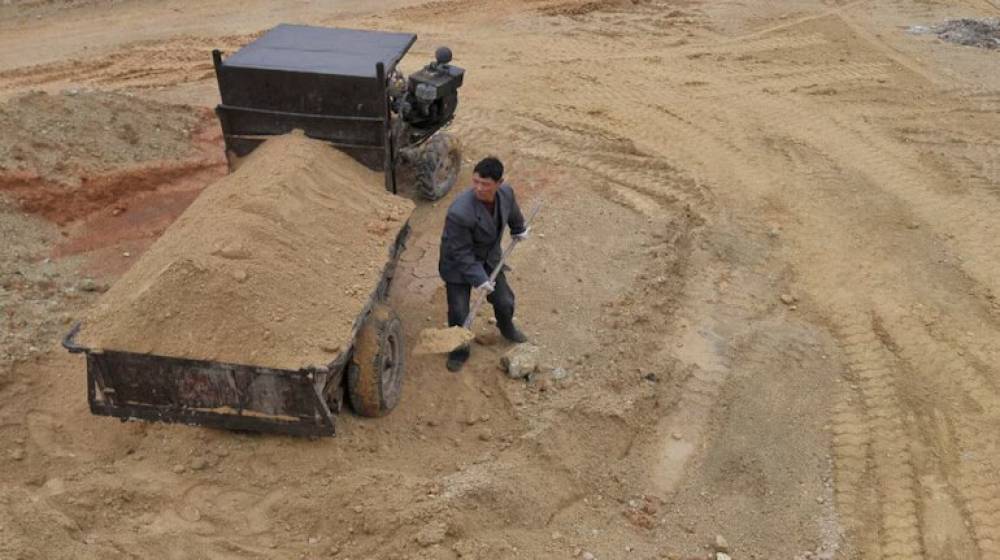
Trung Quốc siết chặt kiểm soát xuất khẩu đất hiếm, gây trì hoãn diện rộng và đe dọa chuỗi cung ứng toàn cầu
-
Trung Quốc mở rộng kiểm soát xuất khẩu đất hiếm vượt ngoài danh sách chính thức, bao gồm cả sản phẩm không chứa nguyên liệu bị cấm như thanh titan và ống zirconi, gây trì hoãn kéo dài từ 1 đến 2 tháng.
-
Dù Mỹ và Trung Quốc đạt thỏa thuận "đình chiến thương mại" trong 90 ngày từ tháng 6/2025, nhiều doanh nghiệp phương Tây vẫn gặp khó khăn khi bị yêu cầu kiểm tra hóa học và phân tích bởi bên thứ ba.
-
Một số công ty vận chuyển từ chối xử lý hàng liên quan đến nam châm, vì lo ngại bất kỳ sản phẩm nào dính từ khóa “nhạy cảm” như “magnet” đều có nguy cơ bị giữ lại để kiểm tra.
-
Theo khảo sát tháng 6 tại Trung Quốc, hơn 60% doanh nghiệp phương Tây cho biết đơn xin xuất khẩu chưa được phê duyệt.
-
Một số doanh nghiệp được cấp phép lại tiếp tục bị trì hoãn do hải quan yêu cầu xét nghiệm hóa chất không rõ ràng, khiến quá trình trở nên như "hộp đen", theo một giám đốc điều hành châu Âu.
-
Việc kiểm soát mới khiến các công ty chuyển sang vận chuyển đường hàng không để né kiểm tra, dù chi phí cao hơn. Nam châm thường nhỏ nhưng nặng nên vẫn có thể gửi bằng chuyển phát nhanh, tuy nhiên vẫn có rủi ro bị soi xét.
-
Bộ Thương mại và Tổng cục Hải quan Trung Quốc hiện không phản hồi trước các câu hỏi từ báo chí về quy trình và mức độ kiểm soát.
-
Trung Quốc nắm giữ gần như toàn bộ chuỗi cung ứng đất hiếm và nam châm ứng dụng trong thiết bị điện tử, máy móc công nghiệp nặng và quốc phòng như máy bay chiến đấu.
-
Các biện pháp mới bị nghi ngờ là nhằm trả đũa việc Mỹ hạn chế xuất khẩu công nghệ, đặc biệt trong ngành bán dẫn và vật liệu chiến lược như gallium, germanium, tungsten, than chì và antimon.
-
EU và doanh nghiệp châu Âu đã cung cấp danh sách đơn hàng “ưu tiên khẩn cấp” cho phía Trung Quốc, phần lớn đã được chấp thuận, nhưng vẫn chưa đủ để duy trì chuỗi cung ứng ổn định và dài hạn.
📌 Trung Quốc mở rộng kiểm soát xuất khẩu đất hiếm ngoài danh sách chính thức khiến hơn 60% doanh nghiệp phương Tây bị trì hoãn đơn hàng. Hải quan yêu cầu xét nghiệm hóa học kéo dài tới 2 tháng, gây hỗn loạn chuỗi cung ứng toàn cầu. Dù đã có thỏa thuận tạm thời với Mỹ, việc kiểm soát vẫn bị đánh giá là không minh bạch và đầy rủi ro.
https://www.ft.com/content/13d18620-d3d8-417e-b7fb-40d97fc064bf
#FT
China’s tighter export controls squeeze wider range of rare earths
Thảo luận
Follow Us
Tin phổ biến



